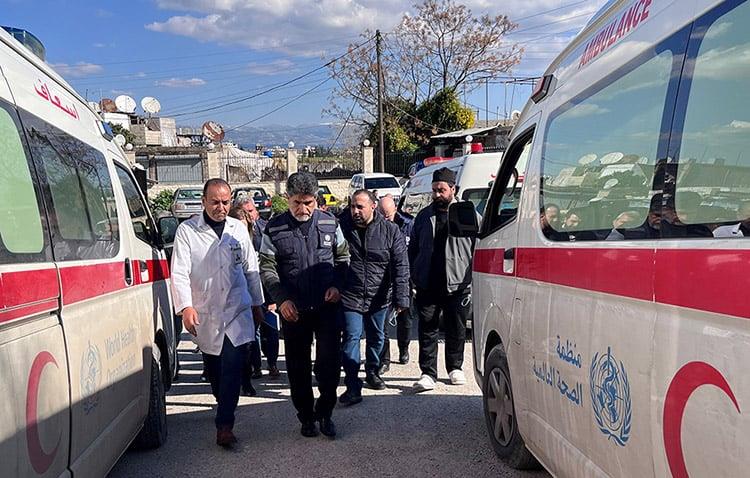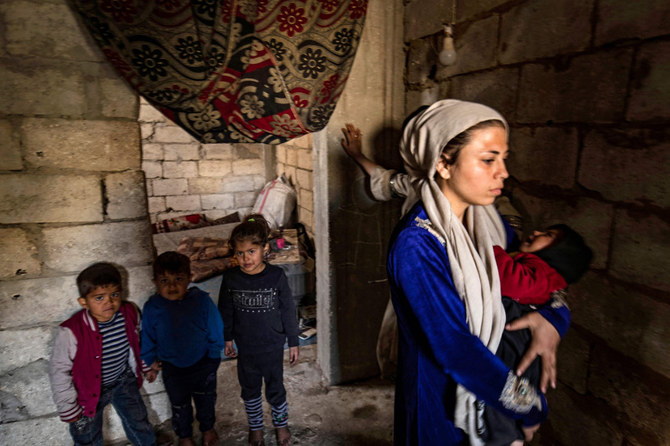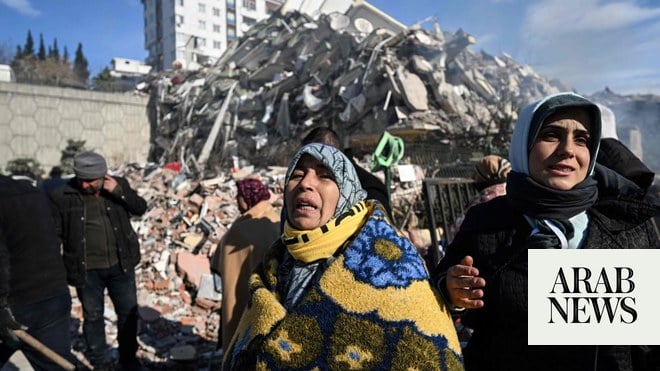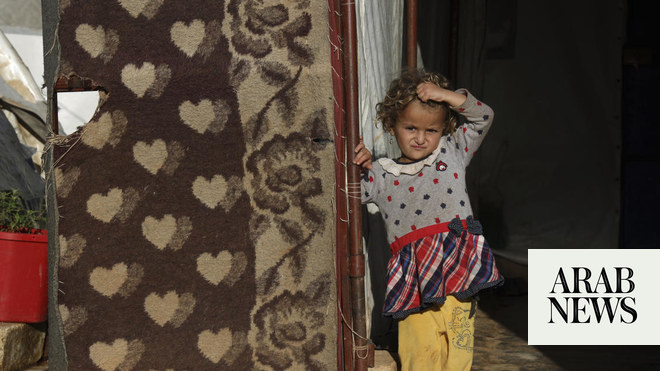
The world has taken its eyes off the nine-year-old violent conflict in Syria. The coronavirus pandemic, the future of Hong Kong, US-China frictions and climate change have instead dominated the headlines for some time. However, the conflict has not gone away.
Eleven million people in Syria, most of them internally displaced, are in need of aid and protection. The UN estimates that 9 million do not have enough to eat. More than half the population have no jobs and hence no prospects for the future. Then there are the 6.5 million refugees, who have mainly fled to neighboring countries.
The situation is very serious. The country has been reduced to rubble and its currency is on a downward spiral, which leads to inflation. The Syrian pound stood at 47 to the dollar at the start of the conflict and had held steady at about 500 to the dollar from 2014. But the exchange rate has been falling ever lower since last year. Corinne Fleischer, of the UN’s World Food Programme, explained that many families need three monthly wage packets to purchase food rations that last only a month.
Lebanon had been Syria’s only conduit to the global economy. It provided some sort of an economic lifeline, but this has disintegrated as a result of Lebanon’s financial crisis and ensuing economic collapse.
The situation is made much worse by the coronavirus pandemic, which has hit the Syrian refugee community particularly hard.
UN Resident Coordinator and Humanitarian Coordinator for Syria Imran Riza warned: “We are on the cusp of all these multiple crises. You see kids that are clearly now getting malnourished. You are seeing levels of malnutrition that we have never seen in the last nine years and this gets worse and worse if you don’t take action right now.”
The UN tried to raise $10 billion for humanitarian relief in Syria but, with the world’s attention elsewhere, it could not achieve that goal. This is where the EU came in. On Tuesday, it co-hosted with the UN a day-long virtual donors’ conference, which proved to be a success of sorts. The Brussels IV conference’s participating countries pledged $7.7 billion. Germany proved particularly generous in contributing $1.8 billion.
EU Crisis Management Commissioner Janez Lenarcic announced afterwards: “We have today expressed solidarity with the Syrian people, not only with words but with concrete pledges of support that will make a difference for millions of people.” That may be so, but this is a drop in the ocean when looking at the immense humanitarian and reconstruction needs of Syria. The country and its people need hundreds of billions of dollars, not just $10 billion.
In other words, there needs to be a concerted global effort to reconstruct and rehabilitate Syria. This is where the problem starts. As long as the international community cannot agree on how to proceed and what to do with the Assad regime, which seems to be holding firm, such a reconstruction effort cannot even begin.
There was the Astana process, under which Iran, Turkey and Russia came to temporary agreements, only to break them when things turned serious. The world cannot leave the Syrian conflict to those three countries. The UN would probably provide the best framework to address the issue, but that means the US, EU, Russia, Turkey, Iran and China all need to be amenable to such a framework.
The US is important, although its troop withdrawal from northern Syria last winter did not depict much in the way of interest, instead leaving its Kurdish allies in the fight against Daesh in the lurch, hence doing nothing to stabilize the situation.
Washington is poised to impose further sanctions on the Syrian regime under the Caesar Syria Civilian Protection Act, which allows companies doing business in Syria to be targeted outside of the nation’s borders, including in neighboring Lebanon, Jordan and Iraq. This will be a blow to the Assad regime, but mainly to the long-suffering Syrian people. UN sanctions have, for a long time, proved ineffective in bringing the warring parties to the negotiating table.
This is a drop in the ocean when looking at the immense humanitarian and reconstruction needs of Syria.
Cornelia Meyer
The EU had joined forces with the US and some Gulf countries in the fight against Daesh. However, its political voice has not been heard, mainly because it was not raised. The Trump administration also did little to consult with its allies on Syria, especially when it came to last December’s troop withdrawal.
While China may not have said much, its companies are poised in neighboring countries in order to take part in any reconstruction effort once it begins.
Tuesday’s donor conference was a step in the right direction, but it was far from sufficient. It was also a lost opportunity because of its virtual format. Conferences like this usually give leaders an opening to have bilateral consultations on the side, but this does not happen when ministers talk to computers rather than to each other.
In the end, Syria will not just go away. The humanitarian disaster needs to be addressed; just like the geopolitical tensions. We are very far away from that happening, which is bad news for the Syrian people, who deserve better.
Cornelia Meyer is a business consultant, macro-economist and energy expert. Twitter: @MeyerResources
Disclaimer: Views expressed by writers in this section are their own and do not necessarily reflect Arab News" point-of-view










